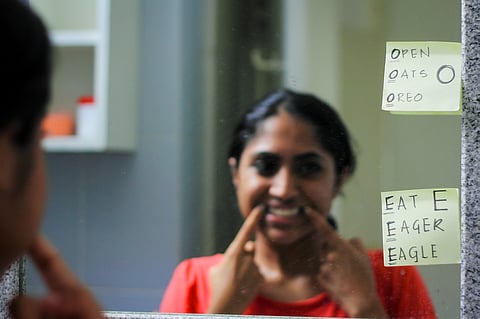
- Mental health mattersMental health matters
- Mental IllnessMental Illness
- Life stagesLife stages
- Caregiving
- Workplace Mental Health
- Legal Matters
- Subscribe

Body image in itself is a perception of one’s own body, how we see our own physical body, its parts, the size, shape and various other attributes. Since it is a perception, it is influenced by various factors in our lives - our environment, the subtle and the not-so-subtle messages, our memories and the various assumptions and generalizations we use to judge ourselves and the world around.
A negative body image is characterized by negative self-talk, obsessing over the color, shape, perceived deformity, lack or weakness of a body part/s/sensory organ and so on. What may make it more difficult for a person with disability is their level of acceptance of their disability, which may complicate the body image issues. Sadly, negative body image can make one prone to various other mental health challenges such as depression, eating disorders, becoming isolated, and low self-esteem.
When it comes to dealing with body image issues, apart from a supportive environment and support system to give you positive affirmation, a large part of the work has to be done by the person themselves. To start a journey towards being body positive:
Start recognizing the sources of body negative messages—people, TV, social media and so on—and do as much to keep away from these sources. Most importantly, try and substitute it with sources that give you body positive messages.
Ask yourself if your acceptance of your disability is coming in the way of accepting your body. Many a times, unless the primary issue is tackled, other issues develop around it, making it more complicated. In that case, it would be a good idea to start working on the acceptance of the disability and then move on to other concerns.
Keep a diary of your thoughts. Write down your negative and positive thoughts. This can help you to become more aware of one’s own negative self-talk and help one recognize the triggers of such thoughts.
Reaching out to a support group in your city may also be a great way to actively seek out a group of people, a safe space where one can share and listen to stories and learn from each other.
Actively building your awareness about negative body image – how it forms and how it impacts us – through reading, watching talks on the internet or attending relevant live talks and so on. This would help us to introspect into our own experiences and our own patterns of thought.
Take care of your body and behave in self-loving ways which include eating healthy, having an exercise routine, and pampering and indulging yourself every once in a while.
Develop hobbies and learn to go out of your comfort zones to learn new skills. This will help you go beyond how your body looks and focus on what you can achieve with this amazing instrument that you have been given.
Last but not the least, if and when you feel that you are not able to face this on your own, it may be a very good idea to reach out to a mental health professional, who through the therapy process, may help you understand yourself better and work through your concerns...'
Shreya Sridharan-Mhatre is Mumbai based psychologist.
We are a not-for-profit organization that relies on donations to deliver knowledge solutions in mental health. We urge you to donate to White Swan Foundation. Your donation, however small, will enable us to further enhance the richness of our portal and serve many more people. Please click here to support us.
